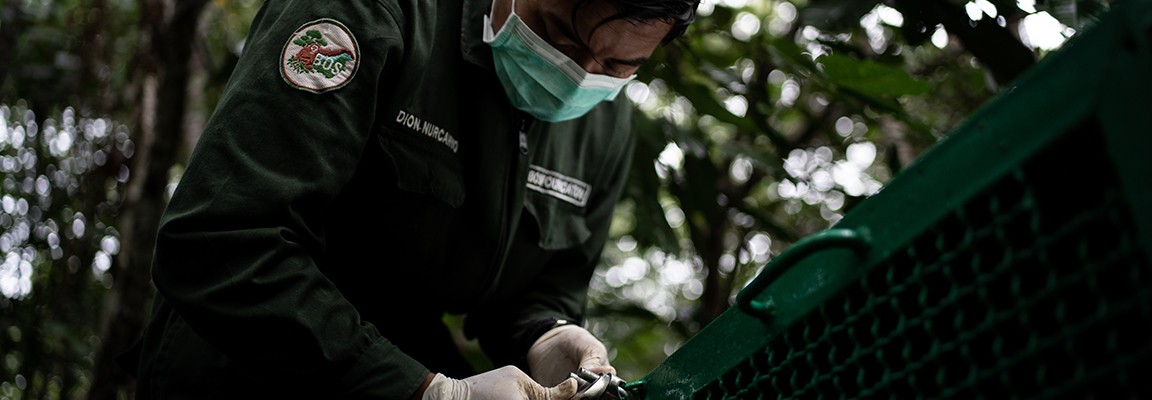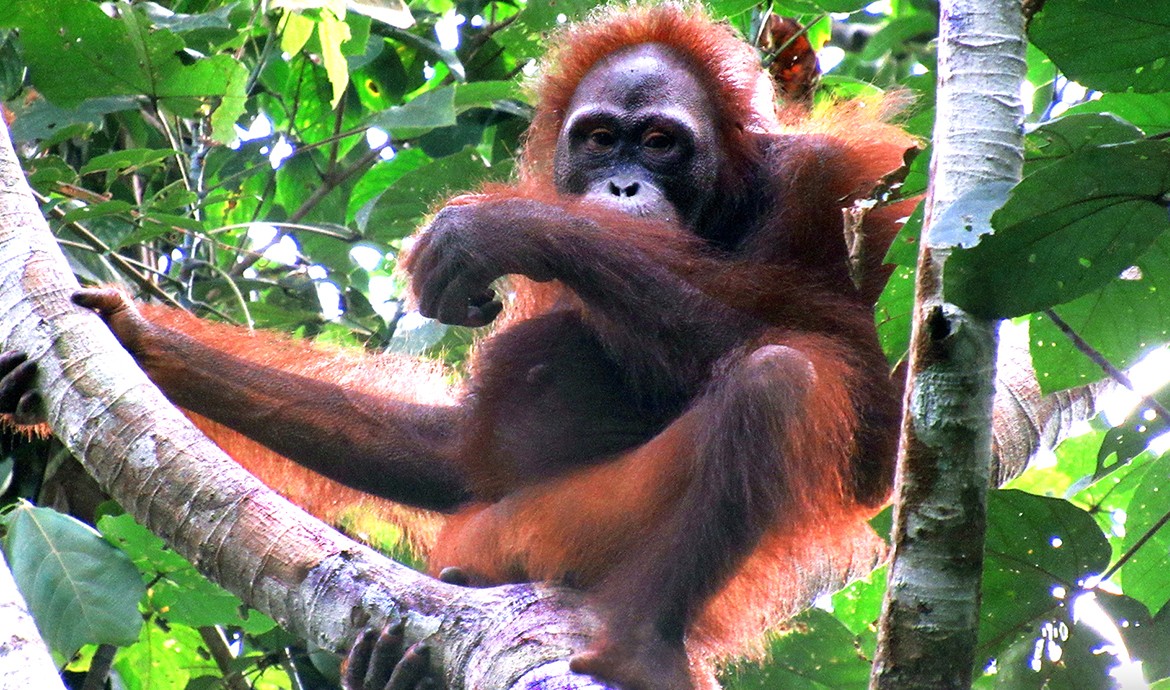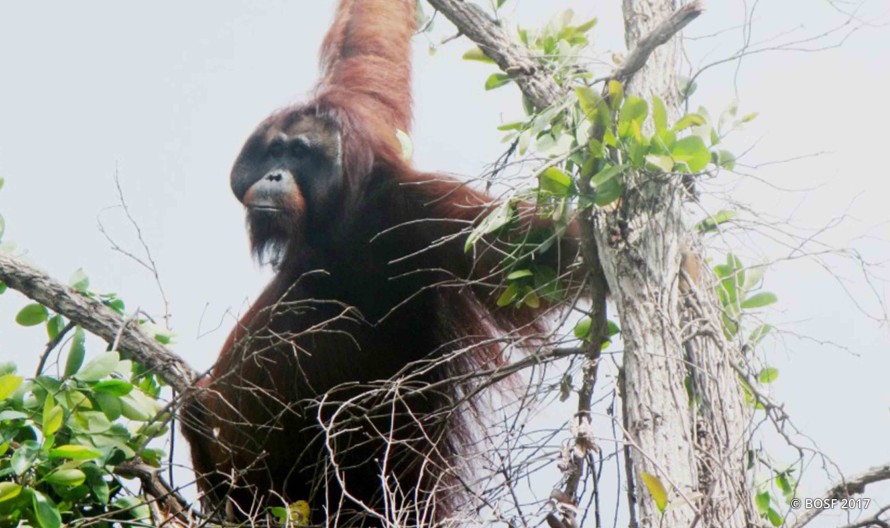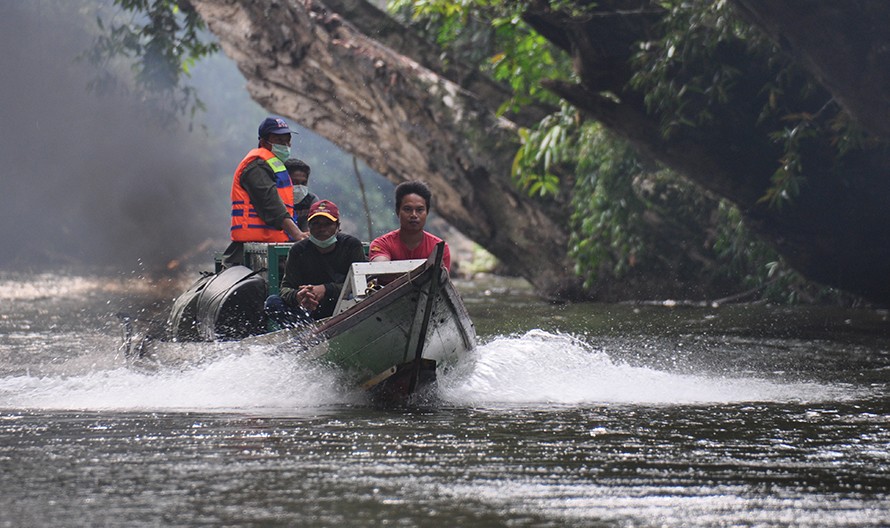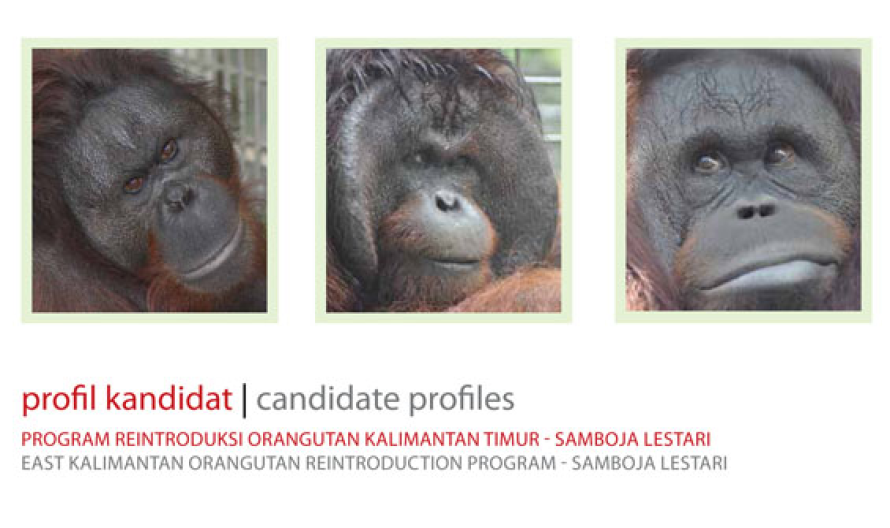The BOS Foundation will today release six more orangutans from their East Kalimantan Orangutan Reintroduction Program at Samboja Lestari to the natural habitat of the Kehje Sewen Forest. Whilst this release is a continuation of the #OrangutanFreedom campaign launched in 2017, and yet another positive step toward orangutan conservation, the BOS Foundation is still struggling to acquire safe forest areas to release the hundreds of orangutans currently undergoing rehabilitation at their centres.
The BOS Foundation—winner of the 2017 World Branding Award Animalis Edition—in cooperation with the East Kalimantan Natural Resource Conservation Agency (BKSDA), will today release more rehabilitated orangutans to the Kehje Sewen Forest in Muara Wahau, East Kutai Regency. This is the 15th release in the Kehje Sewen Forest—an 86,450-hactare Ecosystem Restoration Concession, acquired by BOS Foundation’s partner company, PT. RHOI, in 2010—and will bring the population of released orangutans in this forest to 86 individuals.
The six orangutans to be released today include three males: Arnold (12), Derek (10), Totti (12); and three females: Seto (9), Tinatun (10), and Sakura (10). The three males and Sakura have all completed the pre-release stage of rehabilitation on Juq Kehje Swen, a pre-release island located in Muara Wahau. Meanwhile, the other two females, Seto and Tinatun, will be coming directly from Samboja Lestari. All six orangutans have successfully developed the vital survival skills and behaviours essential for independent life in the wild. Since 2012, the BOS Foundation has worked tirelessly to release orangutans that have spent years waiting in rehabilitation centers, and thus far has managed to reintroduce a total of 334 (340, after this release) orangutans to release sites in East and Central Kalimantan.
DR. IR. JAMARTIN SIHITE, BOS Foundation CEO said: «We are still working on our #OrangutanFreedom campaign with the aim of releasing 100 orangutans this year back to natural habitats. Rehabilitation is a lengthy process, and there is a limited amount of forest available for releasing rehabilitated orangutans. This means there are still hundreds of orangutans in our Central and East Kalimantan rehabilitation centres waiting for the chance to return to the forest. In the forest, we regularly observe and monitor how our released orangutans are adapting to their new environment. We only consider a release successful once we are certain the orangutan in question is living independently in the wild and thriving
This release coincides with Indonesia’s National Education Day. The BOS Foundation wants to see the young generation in this country receive positive messages on environmental issues, as they will become the environmental leaders of the future, and after all, it is their environmental inheritance we are striving to protect. We need affirmative action, and all stakeholders must take part in providing environmental education for the younger generations, and the public in general. The forest needs orangutans, and we need the forest.»
IR. SUNANDAR TRIGUNAJASA N., Head of East Kalimantan BKSDA, added; «Cooperation between the East Kalimantan BKSDA and the BOS Foundation has successfully seen 86 orangutans released back to natural habitat in a well-protected forest. Several organisations and individuals have also been involved throughout the process. This is inevitable, as we all know too well that conservation is a collective effort, involving many stakeholders. The East Kalimantan BKSDA deeply appreciates the involvement of those organisations and individuals in actively supporting the orangutan and forest conservation effort.
Anybody can join the movement! You can hold hands with us and actively support the cause by reporting if you see a wild animal, particularly the rare and protected ones, being kept illegally. Please stop hunting, catching, killing, or domesticating exotic animals like orangutans, gibbons, or hornbills, which are all protected by law. Let’s protect forest biodiversity.»


